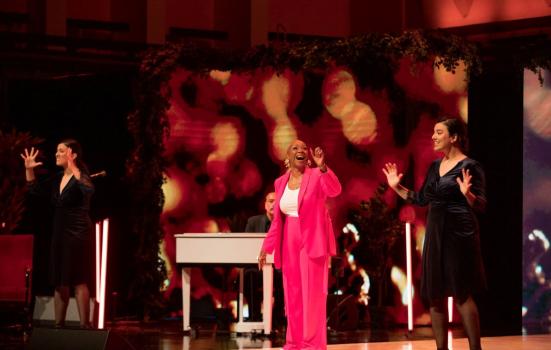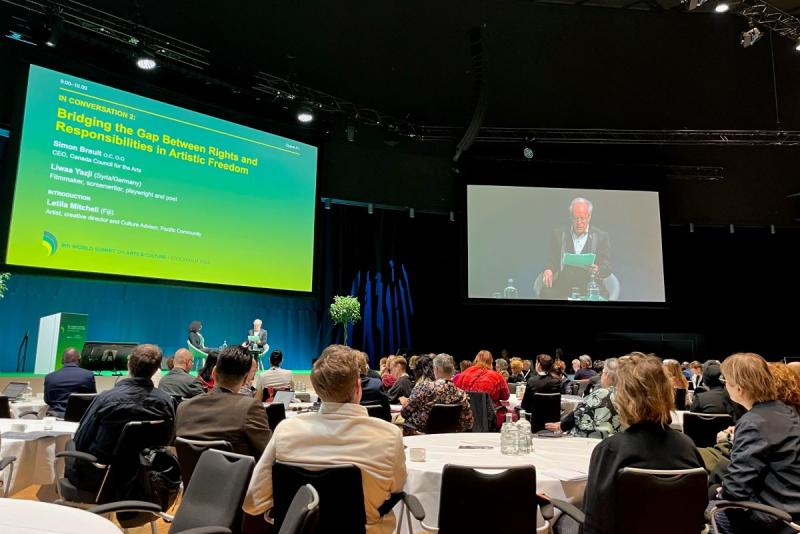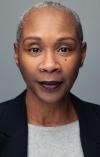Last week in Stockholm, Josette Bushell-Mingo hosted the opening ceremony of IFACCA’s 9th World Summit on Arts and Culture. Within a broad theme of artistic freedom, her focus is on education and the arts, human rights and inclusion.

Susanne Kronholm, Astrid Lingren Memorial Award
IFACCA - the International Federation of Arts Councils and Culture Agencies – is a global network of arts councils, ministries of culture and government agencies that work together to advance arts and culture around the world. Delegates are drawn from over 70 counties across Africa, the Americas, Asia, Europe, the Middle East and the Pacific.
Its work includes programmes which foster international relationships, facilitate discussion and share global knowledge and evidence for the development and implementation of arts and cultural policies.
Every three years – although it was four in this case due to Covid – IFACCA holds a World Summit to raise awareness of shared issues, to advocate publicly for arts and culture and to provide an opportunity for vital conversations about the future of our sector. This year’s theme was Safeguarding Artistic Freedom.
The opening ceremony last Tuesday (2 May) was timed to coincide with a celebration to honour the recipient of this year’s Astrid Lindgren Memorial Award (ALMA) - the American author Laurie Halse Anderson – given annually for a contribution to children’s and young adult literature.
We must remain vigilant
IFACCA’s theme of safeguarding freedom could not be more timely. The arts are under attack more now than perhaps at any point in recent memory. Around the world and closer to home, artistic freedoms and access to culture are threatened at every level.
Artists and arts leaders are contending with conflict, geopolitical uncertainty, the after-effects of the global pandemic, widening inequality and the ongoing, intensifying impact of climate change.
We are also fighting against censorship and political interference and for the right to make and share art without restrictions, repression or persecution. Halse Anderson’s recognition with the prestigious ALMA prize is particularly notable.
Her critically acclaimed novels for young people which explore complex themes of abuse and sexual assault have recently been added to lists of banned books that are appearing in some parts of the United States.
This is yet another sign that our freedom to make art and to share our opinions freely is far from guaranteed. Wherever we are, these freedoms can be gradually chipped away or they can be taken away entirely. We must remain vigilant.
 IFACCA's World Summit on Safeguarding Artist Freedom in Stockholm. Photo: Ruth Hogarth
IFACCA's World Summit on Safeguarding Artist Freedom in Stockholm. Photo: Ruth Hogarth
Freedom of speech entails responsibility too
In the UK, continued cuts to funding have left arts provision in our schools and communities waning, and cultural institutions up and down the country have either closed or are struggling to keep their doors open and their lights on.
Access to the arts is a vital human right. We know the arts have the power to change lives, but with each cut, with each closure, a new generation’s access to the life-changing power of the arts grows more uncertain.
In training institutions like the one I lead – The Royal Central School of Speech and Drama - the Higher Education (Freedom of Speech) Bill currently making its way through Parliament threatens to have the opposite effect of stifling open and inclusive discussion and limiting academic and artistic freedoms.
As artists and educators, we must have the ability – the freedom – to teach students in an open context. One where, whether they agree or not, students are allowed the space to test their ideas, to expand their thinking and to prepare themselves to navigate an ever-more complex world.
Above all, we must be able to impart to them that freedom of thought and speech also carry the weight of responsibility: that the freedom to speak openly should not be used as an opportunity to abuse.
Need to safeguard art itself
And as we work together to advocate for artistic freedom, we must consider representation and work to ensure that those who have less freedom or inherent privilege are centred in and leading our discussions.
We must consider who is represented when these discussions take place – and who is not – so that we can ensure everyone has a seat at the table.
When I think about the very real need to safeguard artistic freedom, I cannot separate this from the need to safeguard art itself. We must come together to advocate for and protect the arts, or they will no longer exist.
The world will no doubt change before the next IFACCA Summit - and its next host country may not be so easy or open-minded, depending on its laws - against homosexuality for example - or on having to reconcile a colonialist history.
If freedom is to be truly safeguarded, we must ask ourselves what are we prepared to lose to defend it.
Josette Bushell-Mingo is Principal of The Royal Central School of Speech and Drama.
![]() www.cssd.ac.uk/
www.cssd.ac.uk/
![]() @CSSDLondon
@CSSDLondon




